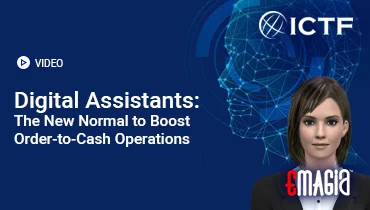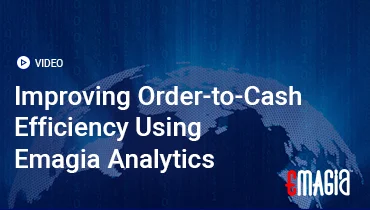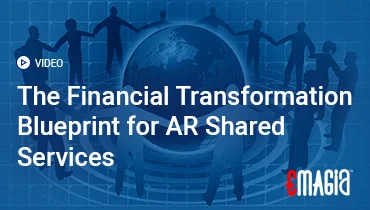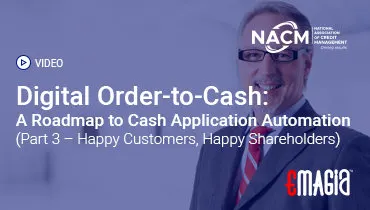In the dynamic world of commerce, businesses extend credit, offer services, and provide goods with the expectation of timely payment. However, despite best efforts, there are inevitable instances where customers or clients fail to meet their financial obligations. When internal efforts to recover overdue funds prove unsuccessful, organizations often face a critical decision: how to retrieve the outstanding debt without expending excessive internal resources or damaging relationships. This is precisely where a specialized entity, commonly known as a collection agency, steps into the financial landscape.
A collection agency is a firm dedicated to recovering delinquent debts on behalf of creditors. These entities act as intermediaries, employing specific strategies and adhering to legal frameworks to pursue unpaid funds from individuals or businesses. For creditors, partnering with a collection agency can be invaluable, offering expertise, saving time, and improving cash flow. For debtors, understanding what is a collection agency and their operational boundaries is crucial for navigating communications and resolving outstanding obligations.
This comprehensive guide will delve deep into the world of collections agencies, exploring their fundamental definition, how they operate, the various types of services they offer, and the critical legal and ethical considerations that govern their practices. We will examine why businesses choose to engage these firms, what debtors can expect when contacted by a debt collection agency, and the broader impact of their work on credit and financial health. By shedding light on the role of a collection agency, we aim to provide clarity for both creditors seeking recovery and individuals facing debt.
Defining the Collection Agency: A Specialist in Debt Recovery
To truly understand the function of these firms, it’s essential to start with a clear debt collection agency definition and grasp their place in the financial ecosystem.
What is a Collection Agency?
A collection agency (also known as a debt collection agency or simply a collect agency) is a company or firm that specializes in recovering overdue funds from individuals or businesses who have failed to make payments as agreed. They act as a third-party intermediary between the original creditor (the entity to whom the money is owed) and the debtor (the person or entity owing the money).
Creditors typically engage a collection agency after their internal attempts to recover delinquent receivables have been exhausted, usually when an account is 60, 90, or even 120 days past due. The primary objective of a collection agency is to secure payment on these outstanding debts and remit the recovered funds to the original creditor, often taking a commission for their successful efforts. Understanding what is a collection agency is the first step in comprehending the debt recovery process.
The Core Purpose: Why a Collection Agency Exists
The role of a collection agency is to provide a specialized service that creditors often lack internally: focused, persistent, and legally compliant debt recovery. Their existence is predicated on several key needs:
- Resource Optimization for Creditors: Businesses often find that pursuing severely delinquent accounts is time-consuming and diverts valuable internal resources (e.g., from their internal collections department) from core operations. Outsourcing to a collection agency allows them to focus on new sales and current customer relationships.
- Expertise in Debt Recovery: Collecting agencies possess specialized skills, negotiation techniques, and a deep understanding of debt collection laws and regulations. They are often more effective at recovering older or more challenging debts.
- Maintaining Customer Relationships (for Creditors): For some creditors, using a third-party debt agency can help maintain a degree of separation, preserving their direct relationship with the customer for future business, even while the debt is being pursued.
- Access to Specialized Tools: Collections agencies often utilize advanced tools like skip tracing (locating debtors who have moved) and automated communication systems that individual creditors may not have.
In essence, they fill a crucial gap when internal collection services are no longer sufficient.
How Does a Collection Agency Work? The Debt Recovery Process Unveiled
Understanding how does a collection agency work involves examining the typical stages and methods they employ to recover outstanding debts. The process is systematic, designed to maximize recovery while adhering to legal boundaries.
1. Debt Assignment or Sale
The journey begins when a creditor decides to turn over a delinquent account to a collection agency. There are two primary models:
- Contingency Basis (Assignment): The most common model. The creditor assigns the debt to the collection agency for a specified period. The agency attempts to collect, and if successful, takes a pre-agreed percentage (commission) of the recovered amount, remitting the rest to the original creditor. If no money is collected, the creditor typically pays no fee.
- Debt Purchase (Sale): Less common for initial assignments, but some collections agencies (often called “debt buyers”) purchase delinquent debts from creditors for a fraction of their face value. In this scenario, the collection agency becomes the new owner of the debt and keeps 100% of whatever they collect.
Regardless of the model, the debt is now officially “in collections.”
2. Initial Contact and Debt Validation
Once a debt is assigned, the collection agency initiates contact with the debtor. This typically involves:
- Initial Communication: Often a phone call, followed by a written notice.
- Debt Validation Letter: By law (e.g., the Fair Debt Collection Practices Act – FDCPA in the US), the collection agency must send a written debt validation letter within five days of their first contact. This letter must include the amount owed, the name of the original creditor, and a statement of the debtor’s right to dispute the debt. This is a critical step for both the debtor and the collecting agency.
This validation process ensures transparency and provides the debtor with essential information.
3. Communication and Negotiation Strategies
Collections agencies employ various methods to encourage payment, always within legal limits:
- Phone Calls: Regular calls to discuss the debt and payment options.
- Collection Letters: Sending a series of formal letters reminding the debtor of the obligation and outlining consequences of non-payment.
- Emails/SMS: Digital communication for reminders and payment links.
- Negotiation: Agencies may negotiate payment plans, partial settlements (where the debtor pays a reduced amount to close the debt), or other arrangements based on the debtor’s financial situation and the creditor’s instructions.
The goal is to find a mutually agreeable path to resolve the outstanding balance.
4. Credit Reporting
If a debt remains unpaid, the collection agency may report the delinquency to major credit bureaus (Equifax, Experian, TransUnion). A “collection” status on a credit report can significantly impact a debtor’s credit score for up to seven years, affecting their ability to obtain future credit, loans, or even housing. This is a powerful incentive for debtors to address the debt.
5. Legal Action (Last Resort)
As a last resort, if all other collection efforts fail, a collection agency may recommend or initiate legal action on behalf of the original creditor. This can lead to a lawsuit, and if the agency wins, they may obtain a court order for wage garnishment, bank account levies, or property liens. This step is typically reserved for larger debts and is a more costly and time-consuming process for all involved.
Types of Collection Agency Services and Specializations
While the core function of debt recovery remains constant, collections agencies often specialize in different types of debt or offer a range of collection services to meet diverse client needs.
1. First-Party vs. Third-Party Collection Agencies
- First-Party Collection Agency: This refers to an internal collections department or a subsidiary directly owned by the original creditor. They handle early-stage delinquencies and often prioritize maintaining customer relationships. Their efforts are typically less aggressive than third-party agencies.
- Third-Party Collection Agency: These are independent companies hired by creditors. They handle debts that internal efforts have failed to collect. They are subject to stricter regulations (like the FDCPA in the US) and often employ more persistent strategies. When people ask what is a collections agency, they usually refer to this type.
2. Commercial Debt Collection (B2B)
These collecting agencies specialize in recovering debts owed by one business to another. Commercial debt collection often involves larger sums, more complex contracts, and a focus on preserving business relationships where possible. They understand commercial laws and negotiation tactics specific to B2B transactions. This includes credit collection services for outstanding invoices from corporate clients.
3. Consumer Debt Collection (B2C)
These agencies focus on debts owed by individual consumers to businesses. This category includes a wide range of debts such as credit card debt, personal loans, utility bills, and medical bill collection agency services. This area is heavily regulated to protect consumers from abusive practices.
4. Specialized Debt Collection
Some collections agencies specialize in niche areas:
- Medical Bill Collection Agency: Focuses on overdue medical bills, often navigating complex insurance claims and patient sensitivities.
- Student Loan Collection: Handles delinquent student loans, often working with specific federal or private loan regulations.
- Auto Loan/Mortgage Collections: Deals with secured debts, potentially involving repossession or foreclosure processes.
- Legal Collections: Agencies that have in-house legal teams or strong partnerships with law firms to pursue debts through litigation when necessary. This is often referred to as a collection division within a larger agency.
The specialization allows for a more tailored and effective approach to different debt types.
5. Pre-Collection Services
Some collection agency services offer “pre-collection” or “early-out” programs. In this model, the agency acts as an extension of the creditor’s internal collections department, making softer, less aggressive contact attempts to recover debts before they become severely delinquent. This helps maintain customer goodwill while still improving recovery rates.
Legal and Ethical Considerations for Collection Agencies
The debt collection industry is heavily regulated to protect consumers from abusive or unfair practices. Understanding these regulations is crucial for both collections agencies and debtors.
Fair Debt Collection Practices Act (FDCPA)
In the United States, the FDCPA is the primary federal law governing third-party debt collection agency practices. It prohibits collectors from engaging in abusive, unfair, or deceptive conduct. Key provisions include:
- Prohibited Communication Times: Collectors generally cannot contact debtors before 8 a.m. or after 9 p.m. in the debtor’s time zone.
- Workplace Contact: Collectors cannot contact debtors at their workplace if the debtor has informed them that such calls are not allowed.
- Harassment and Abuse: Prohibits threats of violence, obscene language, repeated calls intended to annoy, and publishing lists of debtors.
- False Representation: Collectors cannot falsely represent themselves as attorneys or government officials, or falsely claim that a debtor has committed a crime.
- Misrepresentation of Debt: Prohibits misrepresenting the amount or legal status of a debt.
- Contacting Third Parties: Generally, collectors can only contact third parties (e.g., family, friends, employers) to obtain location information, not to discuss the debt itself.
Similar consumer protection laws exist in other countries (e.g., GDPR in Europe for data privacy, specific provincial laws in Canada).
State and Local Regulations
In addition to federal laws, many states and local jurisdictions have their own laws regulating collections agencies, which may impose stricter requirements or additional protections for debtors. Some states require debt agency licensing.
Ethical Practices and Reputation
Beyond legal compliance, reputable collections agencies prioritize ethical practices. This includes:
- Professionalism: Treating debtors with respect and professionalism.
- Transparency: Clearly identifying themselves and the debt they are collecting.
- Fair Negotiation: Engaging in fair and reasonable negotiation to help debtors resolve their obligations.
- Data Security: Protecting sensitive debtor information.
Creditors choosing a collection agency should always vet their practices to ensure they align with ethical standards and legal requirements, as the agency’s actions can reflect on the original business.
When to Engage a Collection Agency: A Strategic Decision for Creditors
Deciding when and whether to engage a collection agency is a strategic business decision for creditors. It involves weighing the costs and benefits against internal collection capabilities.
Factors Influencing the Decision to Outsource Collections
- Aging of Debt: Debts that are significantly past due (e.g., 90-120+ days) have a lower probability of internal collection success. This is often the trigger point for engaging an external collect agency.
- Internal Resource Constraints: If your internal collections department is stretched thin, lacks specialized tools, or is not achieving desired recovery rates, outsourcing can be a cost-effective solution.
- Cost-Benefit Analysis: Compare the potential recovery rate and commission fees of a collection agency against the internal costs (labor, time, resources) of continuing in-house collection efforts.
- Complexity of Debt: Some debts are more complex to collect (e.g., cross-border, disputed, or those requiring legal action). Specialized collection agency services can handle these more effectively.
- Customer Relationship Impact: For some businesses, outsourcing to a third party can create a necessary buffer, allowing the original creditor to maintain a less confrontational stance with the customer.
- Scalability: For businesses with fluctuating or rapidly growing volumes of delinquent accounts, a collection agency provides scalable resources without increasing fixed internal costs.
The decision to engage a debt agency should be part of a broader, well-defined credit and collections strategy.
Emagia: Optimizing Internal Collections Before External Agencies
While a collection agency plays a vital role in recovering severely delinquent debts, modern enterprises are increasingly focusing on optimizing their internal Order-to-Cash (O2C) processes to minimize the need for external intervention. This is precisely where Emagia, a leader in AI-powered O2C automation, offers a transformative solution.
Emagia’s Intelligent Collections Cloud empowers businesses to significantly improve their internal collection rates, reducing Days Sales Outstanding (DSO) and minimizing the number of accounts that ever need to be escalated to a collection agency. By leveraging cutting-edge Artificial Intelligence and Machine Learning, Emagia automates and optimizes every aspect of the internal collections process:
- AI-Driven Prioritization: Emagia’s platform intelligently analyzes customer payment behavior, credit risk, and invoice aging to automatically prioritize collection efforts, focusing on accounts with the highest propensity to pay or greatest financial impact. This ensures your internal collections department is working on the most valuable accounts first.
- Personalized Communication: The system automates and personalizes dunning strategies across multiple channels (email, SMS, customer portals), ensuring timely and relevant reminders. AI can even suggest optimal communication tones and content based on customer segments, fostering better engagement and preserving customer relationships, often a concern when considering a collect agency.
- Automated Workflows: Emagia automates repetitive tasks like sending reminders, escalating overdue accounts, and generating reports, freeing up collectors to focus on complex negotiations and problem-solving rather than manual administrative work. This enhances the efficiency of your internal collection division.
- Dispute Resolution Management: The platform provides robust tools to centralize and streamline the management of customer disputes and deductions, ensuring quick investigation and resolution, which is a major cause of payment delays.
- Real-Time Visibility & Analytics: Finance teams gain real-time insights into collection effectiveness, collector performance, and overall accounts receivable health through intuitive dashboards and predictive analytics. This allows for proactive adjustments to collection strategies, reducing the likelihood of accounts becoming so delinquent that they require an external debt agency.
By maximizing internal collection efficiency and effectiveness, Emagia helps businesses retain more control over their receivables, reduce the costs associated with external collection agency services, and ultimately improve their cash flow and profitability. It enables a proactive approach to debt management, making external collections agencies a last resort rather than a frequent necessity.
Frequently Asked Questions (FAQs) About Collection Agencies
What is a collection agency?
A collection agency is a company that specializes in recovering overdue debts on behalf of creditors. They act as a third-party intermediary, attempting to collect outstanding balances from individuals or businesses who have failed to make payments, using various methods like phone calls, letters, and negotiation.
What does a collection agency do?
The role of a collection agency is to contact debtors, validate the debt, negotiate payment arrangements (including full payment or settlements), and potentially report delinquencies to credit bureaus. As a last resort, they may initiate legal action on behalf of the creditor to recover the debt.
Are collection agencies regulated?
Yes, collections agencies are heavily regulated. In the United States, the primary federal law is the Fair Debt Collection Practices Act (FDCPA), which prohibits abusive, unfair, or deceptive practices. Many states also have their own specific laws governing debt collection agency operations.
When should a business consider using a collection agency?
Businesses typically consider using a collection agency when their internal collection efforts have been exhausted, usually after a debt is 90-120 days or more past due. Factors include the age and amount of the debt, internal resource constraints, and the complexity of the collection.
How do collection agencies get paid?
Most collections agencies work on a contingency basis, meaning they only get paid if they successfully collect the debt. They then take a pre-agreed percentage (commission) of the recovered amount. Some agencies, known as debt buyers, purchase debts for a fraction of their value and keep all collected funds.
Can a collection agency affect my credit score?
Yes, if a debt is reported to credit bureaus by a collection agency, it can significantly impact your credit score. A “collection” entry can remain on your credit report for up to seven years from the original delinquency date, affecting your ability to obtain future credit.
What are my rights when contacted by a collection agency?
Under laws like the FDCPA, you have several rights. These include the right to receive a debt validation letter, the right to dispute the debt, and protection against harassment, false representation, and unfair practices. You can also request that the collect agency stop contacting you (though this doesn’t eliminate the debt).
What is a medical bill collection agency?
A medical bill collection agency is a type of collection agency that specializes in recovering overdue medical debts. They operate under the same general principles as other debt collectors but are often more attuned to the specific regulations and sensitivities surrounding healthcare billing and patient financial situations.
Conclusion: The Strategic Imperative of Effective Debt Management
The role of a collection agency in the broader financial ecosystem is undeniable. For businesses, they serve as a critical external resource when internal collection efforts have reached their limit, helping to recover lost revenue and improve cash flow. For individuals, understanding what is a collection agency and their legal boundaries is paramount for navigating debt effectively and protecting one’s financial future.
However, the ultimate goal for any enterprise should be to minimize the need for external collections agencies by optimizing internal Order-to-Cash processes. By leveraging advanced technologies like AI-powered automation, businesses can enhance their credit management, streamline invoicing, accelerate cash application, and implement proactive, personalized collection strategies. This approach not only improves internal recovery rates and reduces Days Sales Outstanding (DSO) but also preserves valuable customer relationships. Ultimately, a comprehensive and intelligent approach to debt management, whether internal or external, is a strategic imperative for financial health and sustainable growth in today’s competitive landscape.



